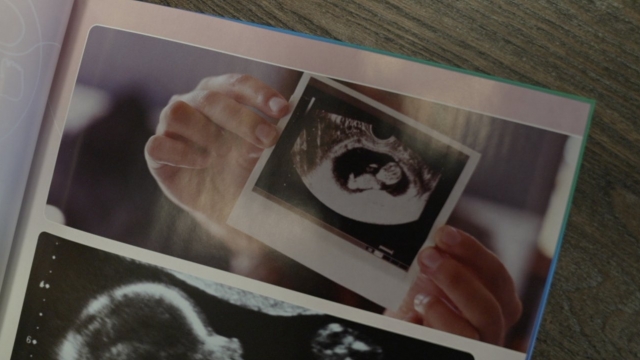According to the World Health Organization, infertility affects one in six people worldwide.
When talking about infertility, you've likely heard of intrauterine insemination (IUI), or in vitro fertilization (IVF). And there's another option out there called embryo donation.
Kjersten and Joshua Blair are the parents of Eleanor, Clive and Haddon. Kjersten was pregnant with all three children. However, the children's DNA is different from the Blairs' because they used donated embryos.
"So we knew from the time we got married that we wanted to have kids," Kjersten said. "About two months after we got married, I basically went into premature menopause, which was very shocking and was told that I would not be able to have my own kids."
Embryo donation is an option available to people facing infertility. The Blairs got their embryos through an organization called Snowflakes Embryo Adoption. Vice President Kimberly Tyson says the embryos come from couples who have participated in in vitro fertilization.
"Oftentimes, more embryos are created than that family ends up using for themselves," Tyson said. "Any remaining embryos are frozen, and if the family isn't going to use any of those frozen embryos, they just remain frozen until the family makes a disposition choice about those embryos."
SEE MORE: Infertility just as much a problem in US as poorer nations
According to Dr. Katie Cameron, an infertility specialist at Johns Hopkins School of Medicine, there are several options couples have for the disposition of remaining frozen embryos.
"Including embryo donation to another individual or couple who is growing their family, there is also the option to donate those embryos to research, or to just advise the clinic that they would like those embryos to be thawed and discarded and not used for any future purposes," Cameron said.
"We hope that they'll make the disposition choice to donate them to another couple who will then give them an opportunity to be born," Tyson said.
That reason is why the Blair family says they ultimately decided to go the embryo donation route.
"I know people often don't think of frozen embryos as kids, but we really did believe this is its own unique life and it's kind of frozen in limbo right now," Kjersten said. "And we were told at the time that there were about 500,000 frozen embryos in the U.S. and their parents didn't really know what to do."
Tyson says that number is now up to one million.
"I do a lot of work in communicating with fertility clinics to encourage them to tell their patients about this as an option," Tyson said.
SEE MORE: Black women are disproportionately affected by infertility
From 2004 to 2019, a national study on embryo donation found that there were 21,000 donated frozen embryo transfers in the U.S., resulting in nearly 8,500 live births. While the number of people choosing embryo donation has been increasing, Cameron says it's still quite rare compared to other infertility methods.
"I think that when people pursue fertility treatment, oftentimes, one or the other, or both members of the couple are pursuing treatment with the intention to use their own biological gametes," Cameron said.
Gametes are eggs and sperm.
"Reasons that somebody would ultimately end up pursuing embryo donation, for instance, is if it turned out that both members of a heterosexual couple had absolute infertility and were not able to contribute genetic information," Cameron said. "Or, for instance, if a woman ultimately ended up needing a donor egg and was unpartnered or was otherwise going to use a sperm donor, then she might elect a donor embryo that's already created."
When donating embryos, both Cameron and Tyson say it involves medical screening, psychological counseling and informed consent so the transfer of rights is done in way that everyone involved is comfortable with the process.
"When somebody pursues embryo donation, they are waiving their future rights to those embryos," Cameron said.
In terms of money, Tyson says the cost, including the transfer, is about $16,000, while in vitro fertilization can be anywhere between $15,000 to $30,000. The Blair family says no fertility treatment is especially affordable, but for them, it was worth it.
"If it was going to be a hard process anyway, we really did want to give a chance at life for embryos that already existed," Kjersten said.
"These are our kids," Joshua Blair said. "It's just a little bit of a different route to get there."
Trending stories at Scrippsnews.com




